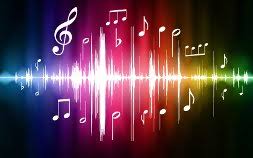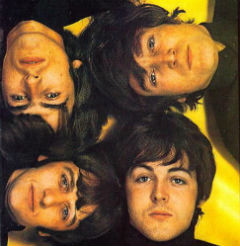Sounds that energize the brain
 “Some sounds work just as well as a couple of cups of coffee,” says Alfred Tomatis, a distinguished French hearing expert.
“Some sounds work just as well as a couple of cups of coffee,” says Alfred Tomatis, a distinguished French hearing expert.
This means that we can use music as a tonic.
Ever since the time when mankind first created music, it served its daily goals. Lullabies, military, sea songs – the list is as long as history and culture.
In these days of high technology, Tomatis has discovered a high-tech method of revealing the internal strength of sound, a force that in fact has the “superpower” to enhance mental abilities, healing and energy nourishment.
According to Tomatis, “sound can be an extraordinary source of energy.” Today, at the age of seventy, he is still energetic; he needs only three or four hours a day to sleep, because when he works, special music sounds as a background. But Tomatis did not close only to tonic music.
For several decades, he made special measurements using sophisticated equipment to find out how different sound frequencies affect a person: which ones supply him with energy and which take him away from him.
And how does this happen? He came to a startling discovery. “The ear is not only for hearing,” Tomatis declared publicly, “the ear is for energizing the mind and body.”
Do you get energy through your ears? When Tomatis experimented with the music of Bach, Mozart, and Gregorian compositions, the testimony of his scientific instruments stated that fatigue, fatigue and weakening as a result of stress occur when the gray cells of your brain receive insufficient electric energy. In other words, they lack strength.
Tomatis claims that these cells work like small electric batteries. They produce electricity in your brain, supplying them with brain waves that are recorded on the EEG. You might think that these small batteries are charged through the metabolism of the body. Not really, says Tomatis. And this is precisely his main achievement.
Your battery cells are charged with something from the outside, and this is something that is sound, in particular high-frequency sound. The conversion of energy coming from outside is done by the corti cells. If you were to travel around your inner ear, then after wandering through the intricate labyrinths of the cochlea, you will suddenly come to the “court line”, the longest line of the most accurate dancers in the world.
Situated in rows, 24,600 oblong cells dance in exact accordance with each sound, like a corps de ballet in the music hall of Radio City.
The energy produced as a result of this unusual dance flows into your brain, and part of it is separated to get through the vestibular branch of the cerebellum to the muscles of your body.
High-frequency sounds energize your brain, while at the same time relieving muscle tension and balancing your body. They affect you even after you listen to them. Some of these high-frequency, energetic sounds are also used in Super Teaching music.
But you are not getting energy just by listening to high-frequency sounds. It is this discovery of Tomatis that explains why some North Americans do not get a boost of vitality by listening to Baroque music, as Eastern Europeans do. There is still something that accompanies the hearing, caused mainly by the pollution of the sound – since the Eastern Europeans are accustomed to a different sound background.
Tomatis also found out that you get used to listening within the sound spectrum of your native language. As a result, people perceive music in completely different ways. The range of listening in Slavic languages includes both very low and very high frequencies. The field of American English is much narrower.
You come to this world with the ability to perceive a wide range of sounds, with the ability to perceive sounds with a frequency of 16 Hz to 20,000 Hz. Then age, sometimes ear infections, and almost always sound pollution impair perception. The noise of a jackhammer with its frequency of 3500 beats per minute, traffic, sirens, metro, screaming music, knocking mechanisms – all this reduces the range of hearing.
According to Tomatis, one of the reasons why we begin to feel worse with age is that we cannot hear high-frequency sounds that can recharge us.
As far back as 1982, Dr. David Lipscomb of the University of Tennessee Sound Lab reported that 60% of university admissions have significant hearing impairment in the high-frequency region. Their hearing could only be compared with the hearing of an elderly person. “These young people begin their working lives with the ears of the elderly,” said Lipscomb.



